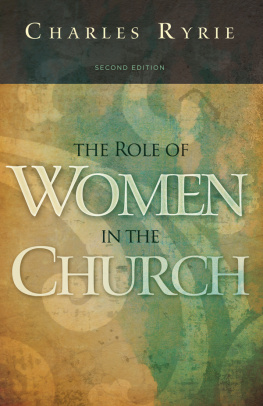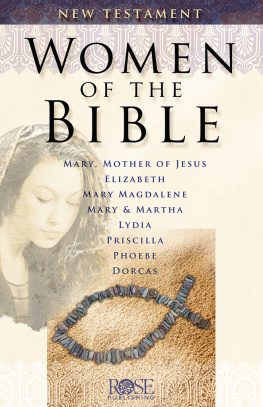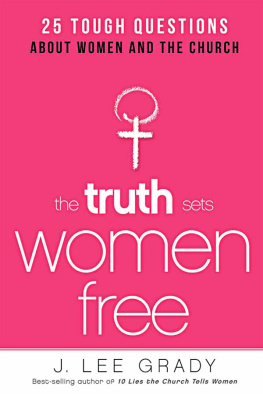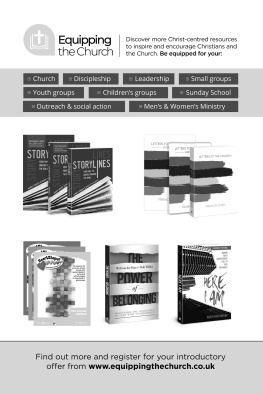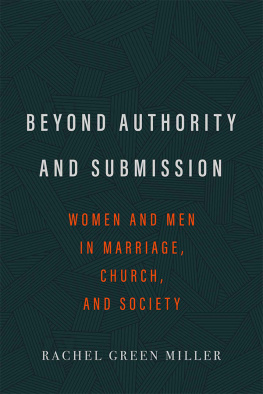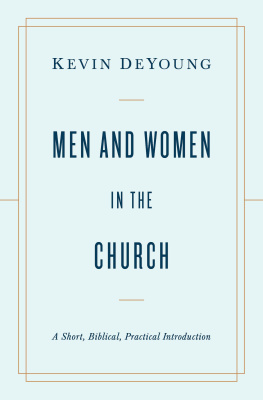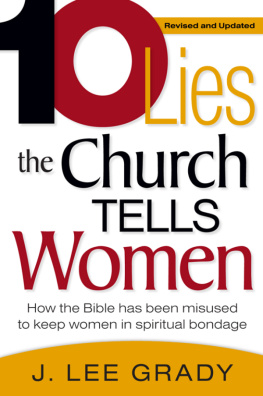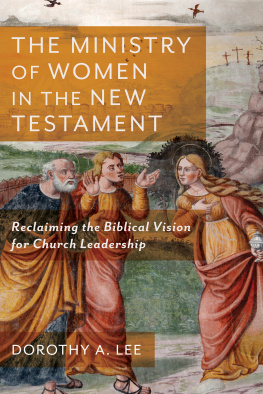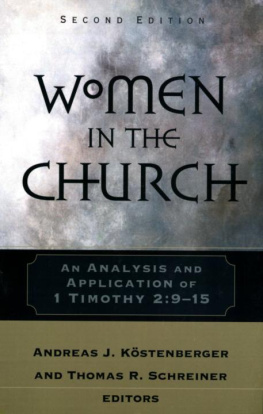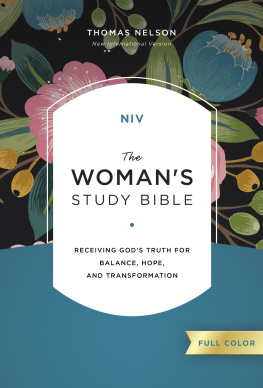OTHER BOOKS BY CHARLES RYRIE
Christian Living
Balancing the Christian Life . Chicago: Moody Publishers, 1994.
Bible Answers to Contemporary Issues . Chicago: Moody Publishers, 1991.
Object Lessons: 100 Lessons from Everyday Life . Chicago: Moody Bible Institute, 1991.
Christian Theology and Biblical Studies
The Acts of the Apostles . Chicago: Moody Publishers, 1961.
Basic Theology: A Popular Systematic Guide to Understanding Biblical Truth . Chicago: Moody Publishers, 1999.
First & Second Thessalonians . Chicago: Moody Publishers, 2001.
The Holy Spirit . Chicago: Moody Publishers, 1997.
Let It Go Among Our People: An Illustrated History of the English Bible from John Wyclif to the King James Version (with David Price). Cambridge, England: Lutterworth Press, 2004.
Revelation . Chicago: Moody Publishers, 1996.
The Ryrie Study Bible . Chicago: Moody Publishers, 197894.
Ryries Practical Guide to Communicating Bible Doctrine . Nashville: B&H, 2005.
So Great Salvation: What It Means to Believe in Jesus Christ . Wheaton, IL: Victor Books, 1997.
Eschatology
The Basis of Premillennial Faith . Neptune, NJ: Loizeaux Bros., 1981.
Come Quickly, Lord Jesus: What You Need to Know about the Rapture . Eugene, OR: Harvest House Publishers, 1996.
Dispensationalism . Chicago: Moody Publishers, 2007.
In the Twinkling of an Eye . Eugene, OR: Harvest House Publishers, 1996.
Transformed by His Glory . Wheaton, IL: Victor Books, 1990.

THE ROLE OF WOMEN IN THE CHURCH
Second Edition
Charles Caldwell Ryrie 1958, 2011
All rights reserved.
ISBN: 978-1-4336-7380-1
Published by B&H Publishing Group
Nashville, Tennessee
(Moody Publishers Edition, 1970)
Dewey Decimal Classification: 305.42
Subject Heading: WOMEN IN THE CHURCH
Scripture passages are taken from the Holy Bible, authorized King James version.
Printed in the United States of America
1 2 3 4 5 6 15 14 13 12 11
CONTENTS



FOREWORD
F or more than half a century I have been intrigued by the legendary theologian Charles Caldwell Ryrie. As a young adult, I was drawn to his writings because of his clarity and depth. Ryrie has always wielded his pen in an incisive but winsome way, drawing his readers into a private classroom full of biblical knowledge to be unleashed and philosophical conundrums to be considered. He is one of the few theologians who is equally at home and adept at explaining the breadth of theological issues while pursuing a depth of understanding that appeals both to the young novice who is only beginning her or his spiritual journey and to the seasoned scholar who still looks for something new under the sun!
Ryries Basic Theology remains my standard text in the courses I teach on understanding the foundational underpinnings of Scripture and faith, and the volume also has a place in the resources I keep close to my desk for ready reference to bring clarity to a student question or to my own wrestlings with how best to frame a discussion on issues of theological debate. Of course, the Ryrie Study Bible was the forerunner in what has been a steady stream of study tools that surround the text of Scripture with brief annotations and explanationsa desk volume for both pastors and laity who seek better understanding of the truths of Scripture. His works have been translated into 20 languages and are scattered around the world in theological training centers as well as in the hands of those who struggle to understand Gods Word without the benefit of large personal theological libraries or formal training.
With this background in mind, let me draw your attention to the volume that has meant the most to menot only in enlightening me on the difficult questions burning in my own heart but the most divisive issue that has come to the forefront of Christendom in the decades completing the last century and moving into the twenty-first century in which we now live and work. That question is this: What can a woman do in the church of God? Are women needed or wanted in the service of Christ and His kingdom? Again, Ryrie finds himself in the role of a prophetic scholar engaging in cutting-edge debate over a question that really had not been asked when he first penned this work as his doctoral dissertation in the mid-twentieth century, nor was the issue really of importance when Moody Publishers first issued his monograph on the subject. Yet the volume did catch my eye as I was moving toward the university and trying to determine my own course of study. Not only did I read and meditate upon every word of the volume in its first editiona well-worn copy I still cherish until today, but also I have returned again and again to pour over its pages and find answers to my own questions and help for my personal struggles as well as being rewarded with answers for questions asked of mewhether on the speaking circuit for womens events or in the theological classroom, where I have taught women for more than three decades.
What is the uniqueness of this volume as one of scores of treatises written on the subject? Certainly Ryrie would have been labeled a well-reasoned complementarian before that term ever entered the marketplace of ideas, and yet this volume is not written as an apologetic for either complementarianism or egalitarianism. Rather it is a masterpiece of blending both historical records with biblical exegesis to present a well-reasoned biblical answer to the burning question from this generation and those to come.
The volume is set apart primarily because of its thoroughly digested reasoning and study that comes forth in a very concise and balanced presentation of the hope that is within every womans heart, i.e., that indeed there is a place of service for each of us in the kingdom of Christ. Moreover, the Lord has clearly set the boundaries and opportunities for that service in the words of Holy Scripture, and He has overshadowed the outworkings of these guidelines in historical examples that reaffirm and clarify what Scripture is saying. Ryrie refuses to bow to historical revisionism or to adjust history or to dismiss words of church leaders who spoke carelessly or from personal prejudice. However, he does put what is recorded in history in perspective and context. The consistency is amazing when evaluating the parts in light of the whole. Nowhere is there a clearer presentation of the sayings of the ancient church fathers on this subject set within a framework that is concise, while allowing the overview of the whole as well as the minute examination of the many passages that make up the parts.
This volume has remained on my reading list and on the bibliography of virtually every course I teach in womens studies. I encouraged my students to look for the volume even when it was out of print. Now I rejoice to know that this timeless work of Charles Ryrie will be available for use as a text in colleges and seminaries across the world as well as available to lay women and men seeking answers to difficult questions and even to pastors and scholars who want to see a clearly defined and tersely stated response to this challenging question before the evangelical world and all Christendom.
Dorothy Kelley Patterson
Professor of Theology in Womens Studies
Next page
